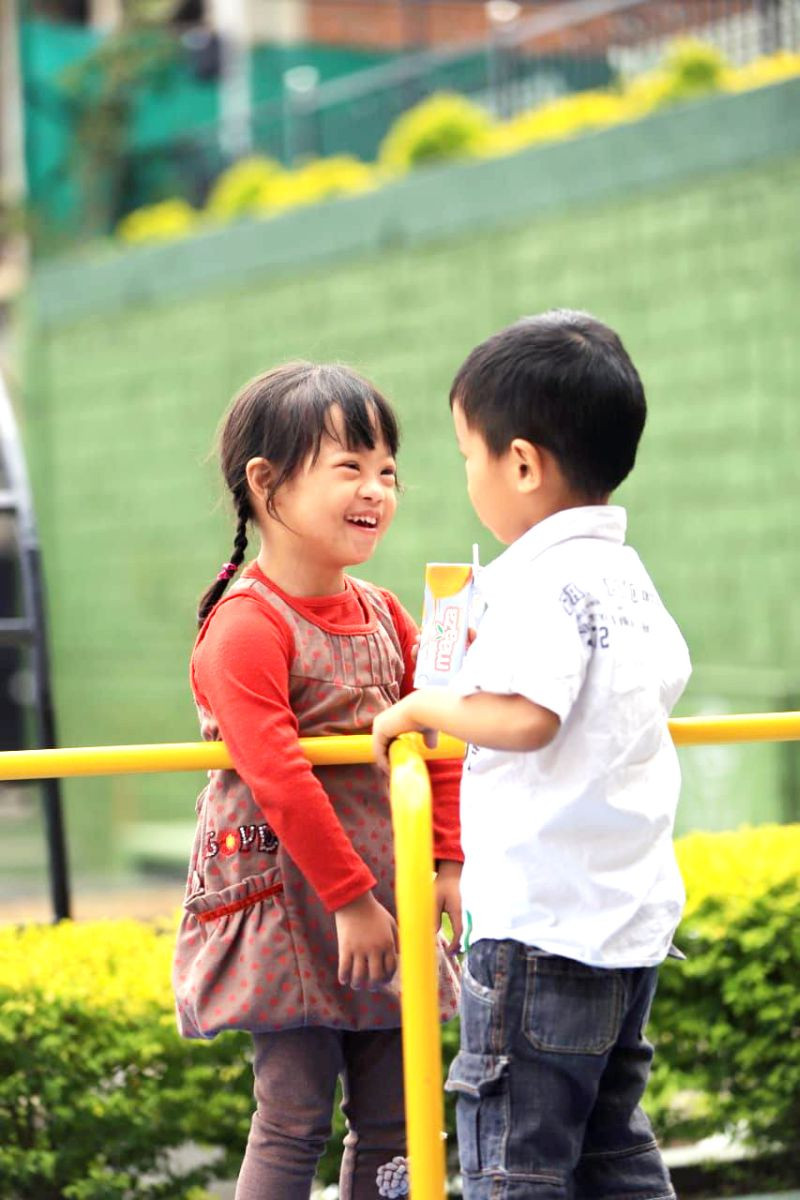A change in attitude, providing positive support and patience can help children achieve a lot of things. (Photo used with permission)

With positive support, children with Down syndrome can lead fulfilling and productive lives
Vishü Rita Krocha
Kohima | November 3
Down syndrome is one of the most common chromosome abnormalities in humans, occurring in about 1 for 1,000 babies born each year. Also known as trisomy 21, Special Educator & Proprietor Bumblebee Inclusive School, Kohima Nagaland, Kopele Tepa explains that it is a condition where a child is born with an extra chromosome, causing physical and mental developmental delays.
However, “With quality educational programs, a stimulating home environment, good health care and positive support from family, friends and the community, people with Down syndrome can lead fulfilling and productive lives,” she asserts.
In the recent past, Bumblebee Inclusive School has had children with Down Syndrome wherein she observed that they are highly interactive. “Because of the fact that they look a little different, and there are some developmental delays, people feel that they won’t be equal. But I think emotionally, they are at par with their peers,” she states.
Relating her experience in dealing with children with Down syndrome, she says, “They are slower in their movements or are sluggish, and we needed to help them learn how to eat without dropping rice, moving around or buttoning themselves.” They also tend to get infections very easily, she says while asserting on ‘cleanliness’. But with proper hygiene and teaching them how to take care of themselves like washing their hands, cleaning themselves up, wearing proper clothes, etc, they are able to fare quite well.
Down syndrome, she further points out is not curable. Many people feel that with remedial or special help, it can be cured but it is a lifelong disability, she puts across. Stating that this is a very hard fact and many people do not take it too well, she however feels that this is something people should know.
All people with Down syndrome experience cognitive delays, she says. “But the effect is usually mild to moderate and is not indicative of the many strengths and talents that each individual possesses,” she adds.
“While behaviour, mental ability, and physical development vary from person to person, many individuals with Down syndrome grow up to hold jobs, live independently, and enjoy normal recreational activities,” she adds.
Kopele Tepa, who has been working with children with disabilities since 2007 established Bumblebee Inclusive School in 2012 to make education barrier free to children irrespective of their difficulties, challenges and abilities, especially making constant effort to provide children with disabilities more opportunities to explore and experience together with general students.
This is also where they have created that environment of acceptance and even when they have children with profound problems, none of the children look at them differently at Bumblebee Inclusive School.
Chairman of Jo Foundation, Daniel Thong also reiterates that children with Down syndrome are highly functional. “Most of them, if taught, will be able to drive vehicles also. They are very friendly, only precaution you should take while playing with them is you have to be careful since their joints are usually loose,” he shares.
As each child is different, the Therapy Team at Jo Foundation makes assessments and accordingly plans out relevant activity for children with Down syndrome.
In general, for special children, he also expresses concern that the society in many cases, have a wrong approach towards special children and their parents as being ‘cursed’ in a certain way because of the wrong doings of their parents or their forefathers. “And that is why many parents would like to hide,” he points out while articulating that “As a parent, I want to let other people know that it is not so. Nobody has the right to stigmatize you.”
In this regard, he urges for change in attitude while asserting that, “With a little bit of patience from the side of the teachers, children with down syndrome can achieve a lot of things.”






